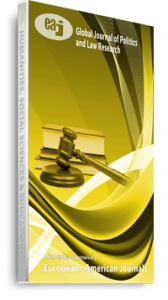This paper examines the prerogative given the executive arm of the government to give assent to Bills passed by the legislature along with its corollary power to veto Bills passed by the legislature. This executive prerogative is expressly provided for in the Constitution of the Federal Republic of Nigeria 1999, as amended, which established the legislative, judicial, and executive branches of the government. This prerogative of assent or veto is exercisable by the President of the Federation in respect of Bills passed by the National Assembly or by the Governor of a State with respect to a Bill passed by the State House of Assembly or even by the Chairman of a Local Government Area involving a bill for a by-law passed by the Local Government Councilors. This paper examines various illustrations of the dynamic relationships and actions when Bills passed by the National Assembly have been presented for Presidential action. The above prerogative in the field of law-making, which field is constitutionally vested in the legislative arm of the government[1] is without prejudice to the hallowed principle of separation of powers. It only strengthens the desired checks and balances against abuses and arbitrariness by the legislative arm of the government. Thus, the Constitution requires that a bill duly passed by the National Assembly, that is to say, by both the Senate and the Federal House of Representatives, shall be presented to the President for his assent or as a corollary, for his veto. The President must either assent or withhold his assent within thirty days of the presentment of a Bill passed by the National Assembly.[2] There is no explicit third option of conditional assent or conditional veto. Notwithstanding the above, to demonstrate that the National Assembly retains the final discretion in the field of law-making, the Constitution vests in the legislature the power to override the veto of the President, or, when the President simply fails to act regarding a Bill within the thirty-day period.[3] The manner in which the above law-making powers have been exercised in Nigeria has created controversies especially with regard to which are the arguably correct procedures in three situations – (i) whether there is an agreed process and time for an override by the National Assembly of a Presidential veto, (ii) whether the President may give merely conditional or partial assent to a Bill, and (iii) whether it is necessary for a President to assent to a proposed Act intended to amend the Constitution. This paper examines these controversies along the following outline:
- The Constitutional Requirement for the Executive to Assent to Bills enacted by the National Assembly
- The Essence of an Assent or Veto by the President to Bills
- Whether the President is vested with the authority to Assent to a Bill Not Duly Passed by the National Assembly
- The Assent of the Executive to Bills for an Act for the Amendment of the Constitution
- The Procedure for the Override of the Veto of the President
- The Interpretation of Section 58(5) of the 1999 Constitution
This paper compares the way Nigeria practices its Constitutional system of government with the practices of similar federal tri-branch systems of government, especially the United States of America. This paper concludes that these controversies can only be resolved by the authoritative rulings of Nigeria’s apex court, the Supreme Court of Nigeria, or when there exist express provisions of the Constitution of Nigeria relevant to a controversy, by strictly enforcing those provisions.
*Faculty of Law, Chukwuemeka Odumegwu Ojukwu University, Igbariam Campus, Anambra State, Nigeria <cj.ileka@coou.edu.ng>
[1] S 4 of 1999 Constitution of the Federal Republic of Nigeria (as amended) (Henceforth, the Constitution)
[2] S 58(4) of the Constitution. S 100 of the Constitution provides for its equivalent in respect of the State.
[3] S 58(5) of the Constitution provides that “Where the President withholds his assent and the bill is again passed by each House by two-thirds majority, the bill shall become law and the assent of the President shall not be required.”
Citation: Justin C. Ileka (2022) An Examination of the Presidential Power to Veto or Assent to Bills in Nigeria, Global Journal of Politics and Law Research, Vol.10, No.6, pp.67-82
Keywords: assent, passing of a bill, veto

